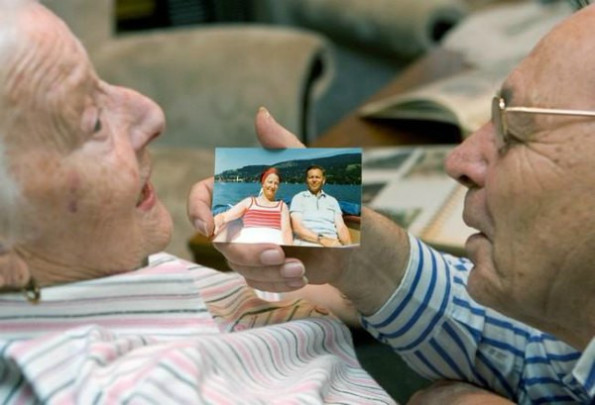What can be infected when swimming and how to avoid it
 As soon as warm days are established, the first most seasoned citizens open the swimming season. Well, when the heat comes, literally everything rushes to the water. On such days, every reservoir, be it a river, a lake or an elementary pond, on an equipped beach or just on a lawn by the water, is literally no place for the apple to fall. Both old and young are bathed: babies wallow in shallow water, older children scream and scream, splash, swim and dive where they are deeper, experienced swimmers swim away from the shore, and even older people are happy to dip into the cool water.
As soon as warm days are established, the first most seasoned citizens open the swimming season. Well, when the heat comes, literally everything rushes to the water. On such days, every reservoir, be it a river, a lake or an elementary pond, on an equipped beach or just on a lawn by the water, is literally no place for the apple to fall. Both old and young are bathed: babies wallow in shallow water, older children scream and scream, splash, swim and dive where they are deeper, experienced swimmers swim away from the shore, and even older people are happy to dip into the cool water.
Intestinal infections
This is perhaps the most common infection that can be picked up in our latitudes. Pathogenic microorganisms: viruses, bacteria, protozoa – live in water, sand, and earth. You can become infected by swallowing water or through dirty hands, for example, digging in the sand.
What intestinal infections threaten us on the beach? It:
rotavirus infection, it is the intestinal flu;
dysentery;
colibacillosis (E. coli);
giardiasis;
cryptosporidiosis;
salmonellosis;
All of these infections are characterized by damage to the gastrointestinal tract: abdominal pain, severe diarrhea, nausea, and fever. The main danger is dehydration. However, the majority of these infections can be cured quite simply and quickly, including cholera, however, the rest will be badly damaged.
Along with these intestinal infections during bathing, you can become infected with more serious diseases.
Hepatitis
Viral hepatitis A (Botkin’s disease) and E are transmitted through water. True, it is more likely to become infected with hepatitis A or E in hot countries, but in Russia there is such a risk.
Hepatitis viruses infect liver cells and cause inflammation. These infectious diseases are manifested by jaundice, high fever, pain in the right hypochondrium, indigestion (nausea, vomiting, diarrhea). You have to be treated for a long time, then you need to follow a diet and be under the supervision of a doctor. The most annoying thing is that hepatitis can give complications to the liver and kidneys.
Leptospirosis
This is a serious bacterial infection, its carriers are animals, both wild and domestic. You can become infected not only by taking a sip of water while bathing, but also by the ingestion of leptospirosis bacteria in wounds on the skin. Particularly dangerous in this respect are small ponds with stagnant water.
The infection does not appear immediately, it may take one or two weeks before the first symptoms appear. Then a sharp rise in temperature to 40 degrees, muscle and headaches, weakness, thirst, nausea with vomiting.
Recovery occurs only after a month, but the disease can begin in the second round, albeit in a milder form.
The consequences of leptospirosis can be quite severe: visual impairment, including blindness, muscle weakness, damage to the nervous system.
Worms
It is also possible to become infected with worms when bathing, although such cases are quite rare. This can happen if you swallow the helminth larvae with water. Particularly dangerous in this regard, dirty water.
For a child, the real threat of infection with worms is to dig in the ground or sand.
Symptoms of helminthic invasion – flatulence, itching and rash, loss of appetite, poor sleep.
Fungi
When bathing, and especially walking barefoot on the beach, you can become infected with mycosis – a fungal infection. Fungi fall into the water from infected people. The fungus primarily affects the feet and toenails. Symptoms of mycosis – flaky skin, discoloration and thickening of the nails.
Why not be afraid
When bathing can not be infected:
sexually transmitted diseases and sexually transmitted infections;
HIV infection and AIDS;
hepatitis B and C.
These diseases are transmitted either through sexual contact or through blood.
Another horror story is horsehair, a roundworm that lives in fresh water. They say that hair can penetrate the skin into the human body and wade to the heart, eating all the organs on the way. This is complete nonsense. Horsehair is completely harmless to humans. And he really can not penetrate the skin. Of course, it can be accidentally swallowed with water, but there will be no particular harm.
How to avoid danger
Choose flowing reservoirs with clear water. Bathing in small ponds, especially if there is a crowd of people, it is better to avoid.
Overgrown reservoir with mud – not the best place for swimming.
Try not to swallow the water while bathing.
After bathing, if possible, take a shower and change clothes. At least rinse your face and wash your hands.
Do not dig in the sand and do not let children do this, especially if there are cuts and wounds.
Do not bathe where the announcement “Bathing is prohibited” hangs. It is likely that the water there was tested and found pathogens.
Avoid ponds where geese, ducks, and swans swim. In such water, parasites live.
You should not choose a place for watering animals for swimming. It is enough just to pick up an intestinal infection.
Do not bathe if there is a dump nearby, as well as where a gutter is laid in the pond.



